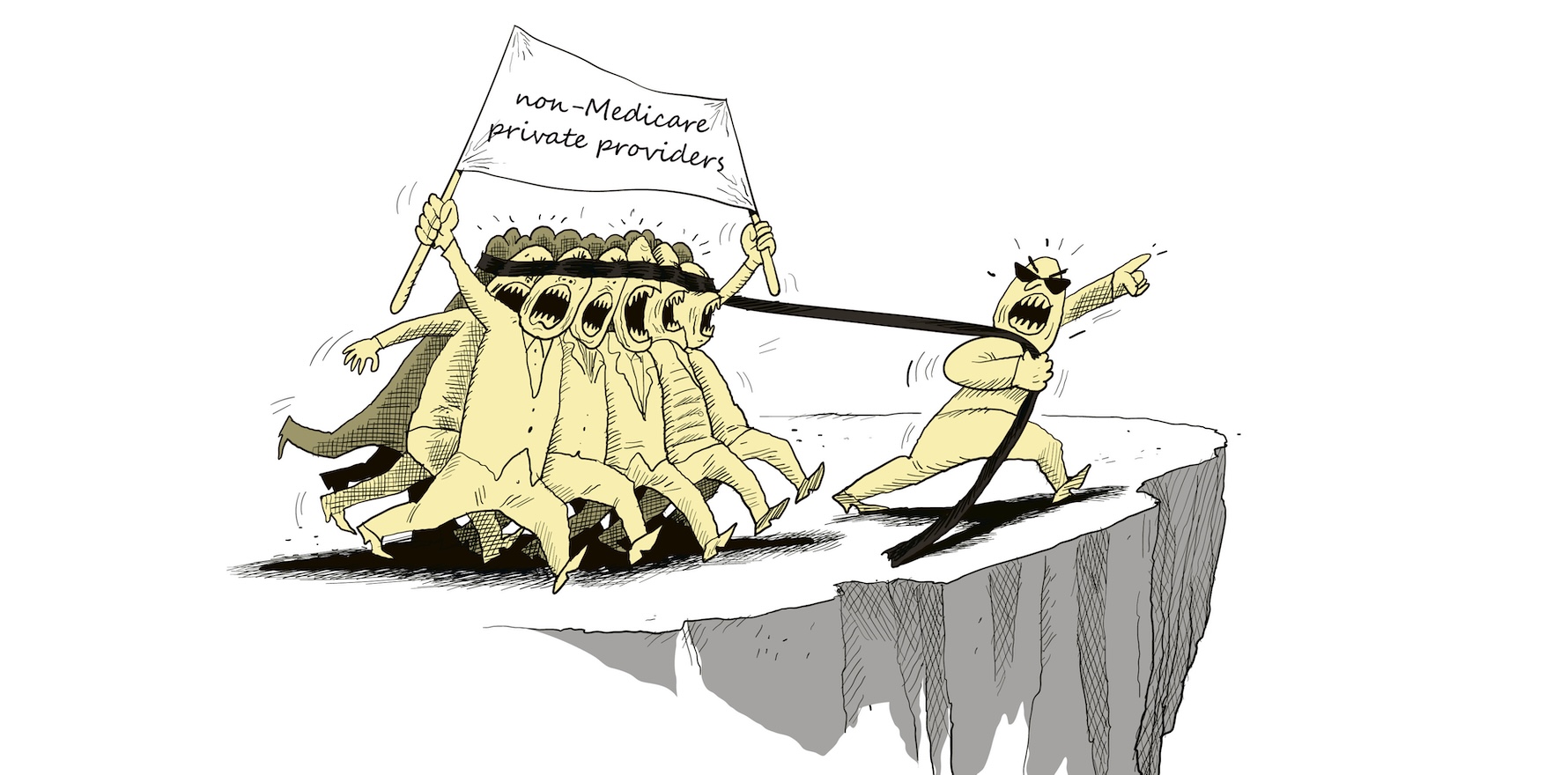The different silos in healthcare need to stop defending their turf at the expense of improving patient outcomes via interoperability and connected care.
Two healthcare experts have called for the various silos in the Australian healthcare system to “put their swords down” in order to improved connected care, digital integration, and ultimately, patient outcomes.
Anja Nikolic, CEO of the Australasian Institute of Digital Health, told delegates at Health Services Daily’s Towards One Healthcare Summit in Canberra, that “protectionist” attitudes were impacting progress.
“Some of the resistance to the [findings of the scope of practice review] has come from a perception that if we change this and allow these new referral pathways to develop or to occur, we lose the centrality of information primarily around general practice,” said Ms Nikolic.
“That’s a legitimate concern.
“But stopping a sensible development in the referral pathways is not the way to overcome that.
“The way to overcome that is to create systems and technologies and processes and workflows that connect that information.
“Allow the referral to take place in situ where it should, but ensure that the right information is flowing back and that that information is actually a two-way free-flow between the physio who might be writing a referral and the GP who needs to understand the full picture of the patient.”
This article originally ran on TMR’s sister site, Health Services Daily. TMR readers can sign up for a discounted subscription.
Ms Nikolic said the AIDH’s position was that connected care “is the only way to go forth, but we are not doing it particularly well”.
“It’s not just about change management. It is also about dropping the protectionism within each profession,” she said.
“I’m calling on each of the peak bodies, each of the associations, to really divest out of that view.
“I know it’s hard. It’s in the DNA. I used to lead one.
“We are there to advocate for our workforces. But ultimately, if we’re overly protectionist about our patch we are doing the health system a disservice.
“Let’s think of a different way, a much more collaborative way. Let’s not play that lip service and then go and do the same thing we’ve always done.”
Related
Ms Nikolic was backed up in a later session by Medibank’s group chief medical officer Dr Andrew Wilson, who told delegates about Amplar’s doctor-owned private hospital Adeney in Melbourne.
The hospital is the first no-gap private hospital in the country.
“If you’re an insured person and your insurer’s got a contract with Adeney, there are no gaps to pay,” said Dr Wilson.
“That just seems like a complete no brainer to me, and we’ve had very senior doctors actually say, why the hell this couldn’t we just roll out throughout the whole industry?
“It’s a very good question.
“And I think it goes to, you need groups to put their swords down and actually work together to make this happen, because it’s quite feasible.”
Ms Nikolic also said there were large pockets of healthcare where there was no room for education and uplift in the digital space.
“Clinicians will prioritise clinical learning, I understand that,” she said.
“But there needs to be space, and it needs to be articulated by the leadership, that you need to make space for learning that will ultimately benefit the healthcare system – learning how to use technology to be more effective, learning how to use technology to be more efficient.
“There’s no lack of learning interventions.
“There might be a bit of a lack of appetite amongst certain pockets.”
Ms Nikolic described a course run by the AIDH, Digital Health 101 for the “inexpert clinician who wants to get their head around digital health”.
“The largest consumers of that course are the digital health agencies,” she said.
“We have tried to sell that course into allied health, peak bodies, into nursing, into other organisations, and have had so little uptake, not because the course is expensive, not because the course is no good.
“So something needs to change, and leadership needs to step in.”





